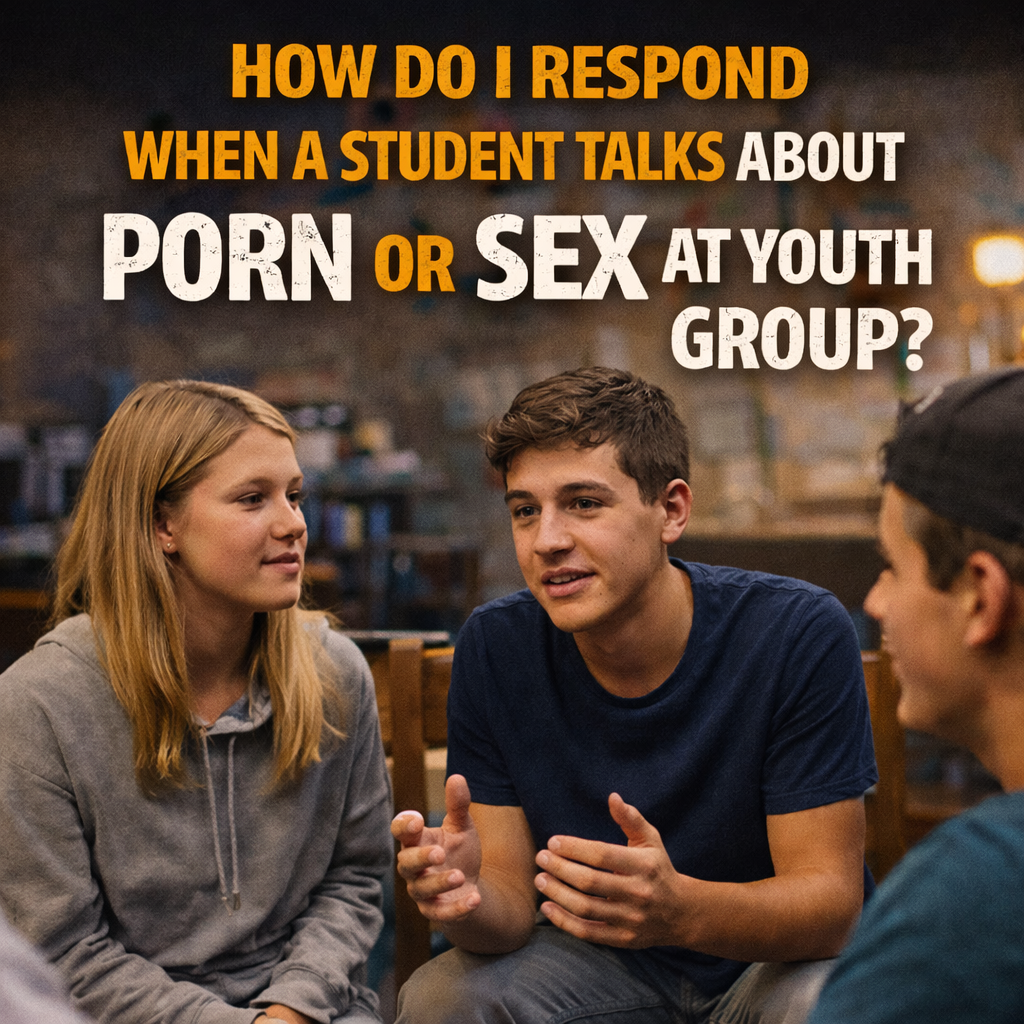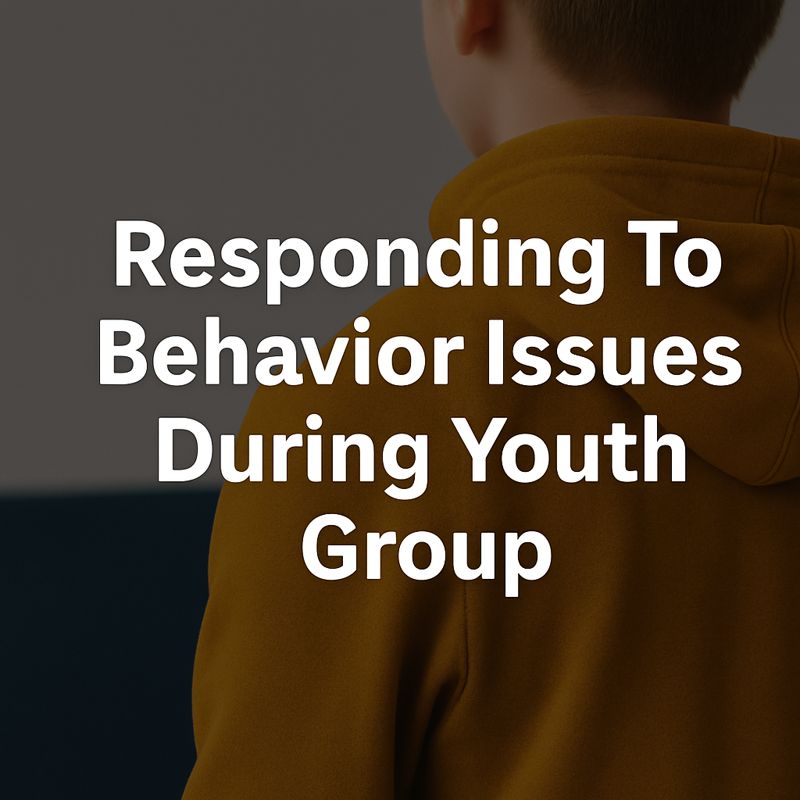
How Do I Respond When a Student Talks About Porn or Sex at Youth Group?
For most of us, February is the month of love—and also the month of the “sex talk” in youth group.

I’m a huge basketball fan, so I love it when the shot clock is winding down. The pressure feels good. It’s dramatic and enrapturing. But feeling the shot clock winding down on Wednesday night youth group prep probably doesn’t feel as cool, does it? And, of course, when I say “Wednesday night”, I just mean whatever day or night of the week your youth group meets. Anyway, choosing a youth ministry curriculum isn’t just about finding something that just fills time on Wednesday nights. Choosing a curriculum is about discovering a tool that shapes students’ faith in the long run. But with so many options, how do you know which curriculum is actually worth investing in? The reality is, not all curriculum is created equal. Some are engaging but shallow. Others are theologically deep but unrelatable. Some are packed with great resources but impossible to implement. If you’re looking for a great youth ministry curriculum that actually works, here are five essential qualities to look for.
For a full breakdown of how to choose the right curriculum, check out our complete guide (Choosing The Best Youth Ministry Curriculum For Your Church).
A lot of youth ministry curriculum focuses on:
Behavior modification (be a better person, stop doing bad things.)
Character lessons (kindness, honesty, perseverance.)
Life skills with a spiritual spin (how to have good friendships, make wise choices.)
None of those things are wrong, but if the curriculum only teaches moral lessons without anchoring them in the gospel, it’s missing the point.
What to look for:
If the curriculum doesn’t connect with students’ real lives, they’ll tune out fast. A great youth ministry curriculum should answer the questions students are actually asking. Questions around identity, faith, culture, relationships, anxiety, etc. A great curriculum should also use language they understand. Drop the overly complicated theological jargon! Finally, a great curriculum should incorporate media, discussion, and real-life application. Ask yourself:
Some youth pastors prefer to pick random topics each week based on what feels important. But without a structured plan, students end up with spiritual gaps in their learning. A strong curriculum provides:
A good curriculum guides students through faith formation intentionally, instead of just hoping they pick up what they need along the way.
They don’t give us enough credit for this, but us youth pastors are busy. It ain’t all pizza and video games. Between sermon prep, student discipleship, event planning, and volunteer coordination, there’s not always time to rewrite curriculum from scratch. That’s why a great curriculum should be:
If a curriculum is overwhelming, confusing, or too much work, it won’t get used consistently—no matter how good the content is.
A curriculum should help create a culture of discipleship that lasts beyond the youth room. Like as a teenager, I had no earthly clue what curriculum my youth pastor used, but I do know that the stuff she taught us prepared me for live beyond youth group. I didn’t always feel it was deep enough. Some nights I was bored. But taken as a whole, whatever curriculum my old youth pastor used really helped me in the long run. Your curriculum should do that for your students, too. That means:
At the end of the day, curriculum is just a tool. But the right tool makes all the difference. A great youth ministry curriculum isn’t just about:
It’s about helping students encounter Jesus. This is about building a foundation of faith that lasts. They won’t be teenagers forever. It’s about creating an environment where discipleship thrives. Choose curriculum that actually makes a difference. Your students—and your ministry—will thank you for it.
Related Posts:
Choosing The Best Youth Ministry Curriculum For Your Church
Check out Base G – a structured, gospel-centered curriculum designed to equip students for lifelong faith.

For most of us, February is the month of love—and also the month of the “sex talk” in youth group.

A tired, defeated youth pastor emailed me recently asking for advice about behavior issues during youth group. She had already

It’s a fact: we could not do youth ministry or have a thriving group without our volunteers. Volunteer leaders allow